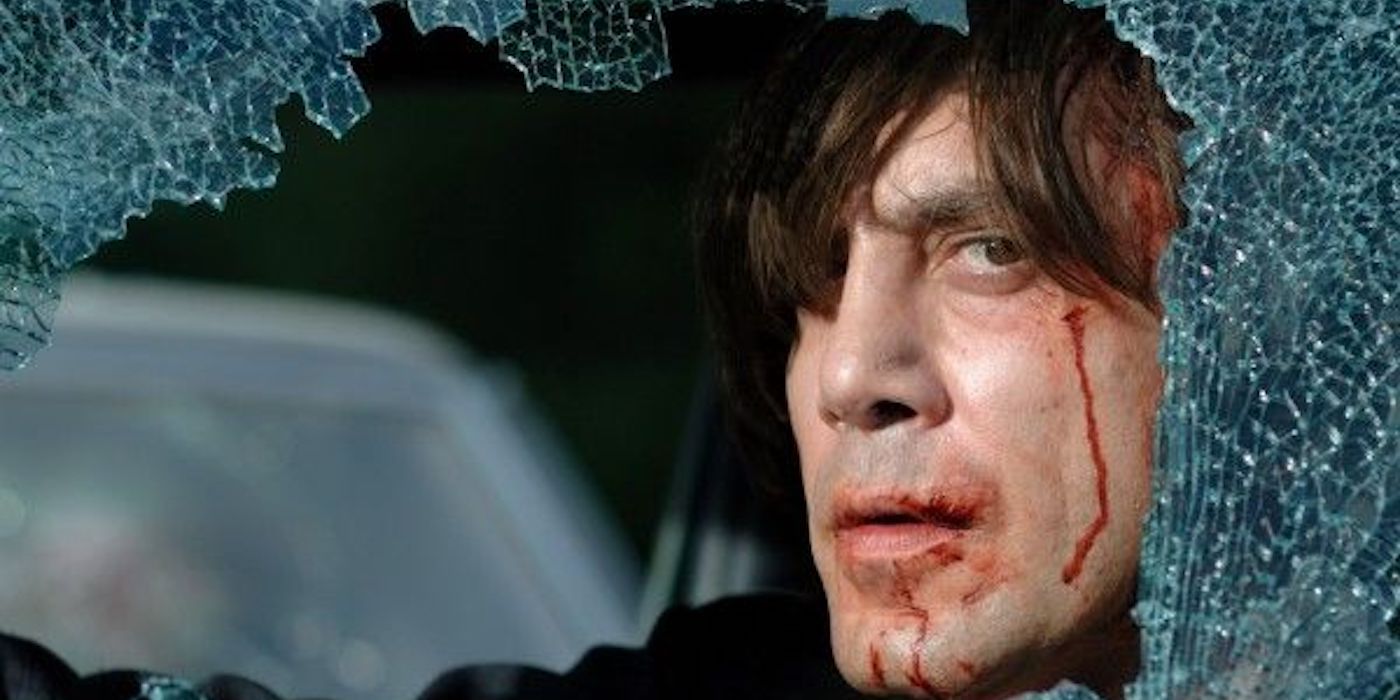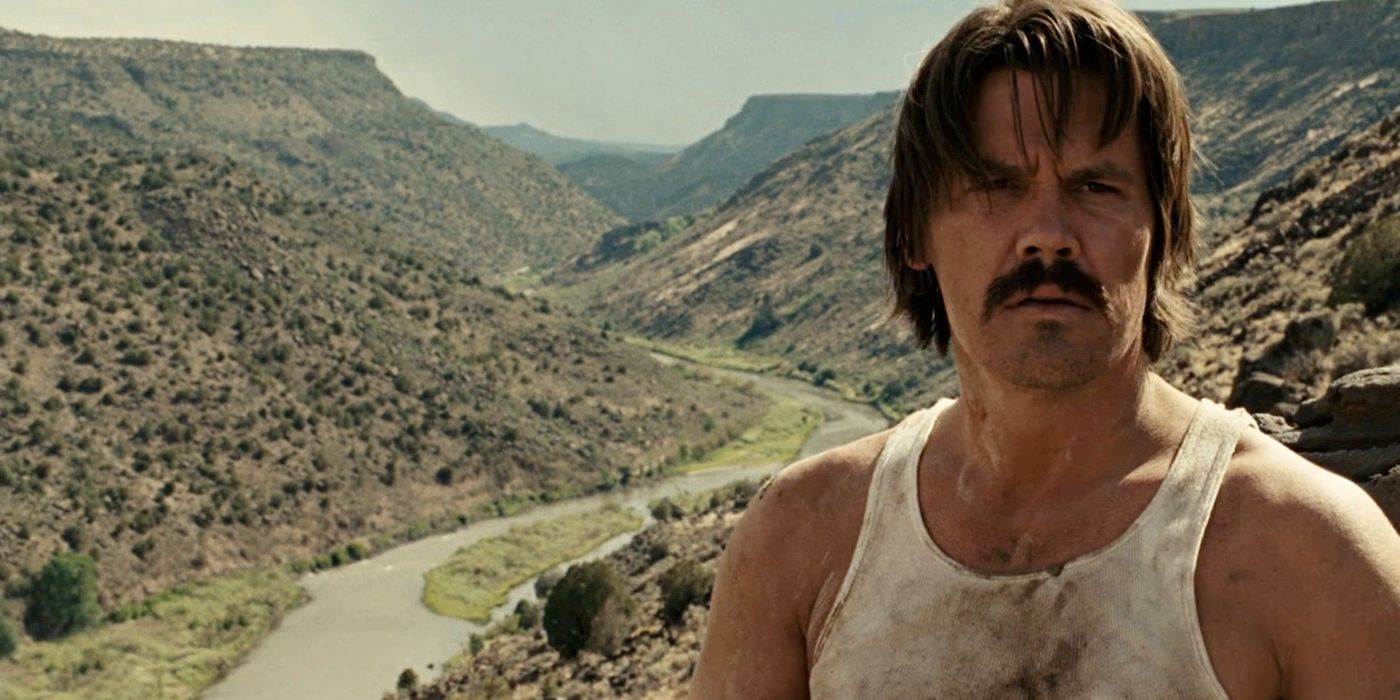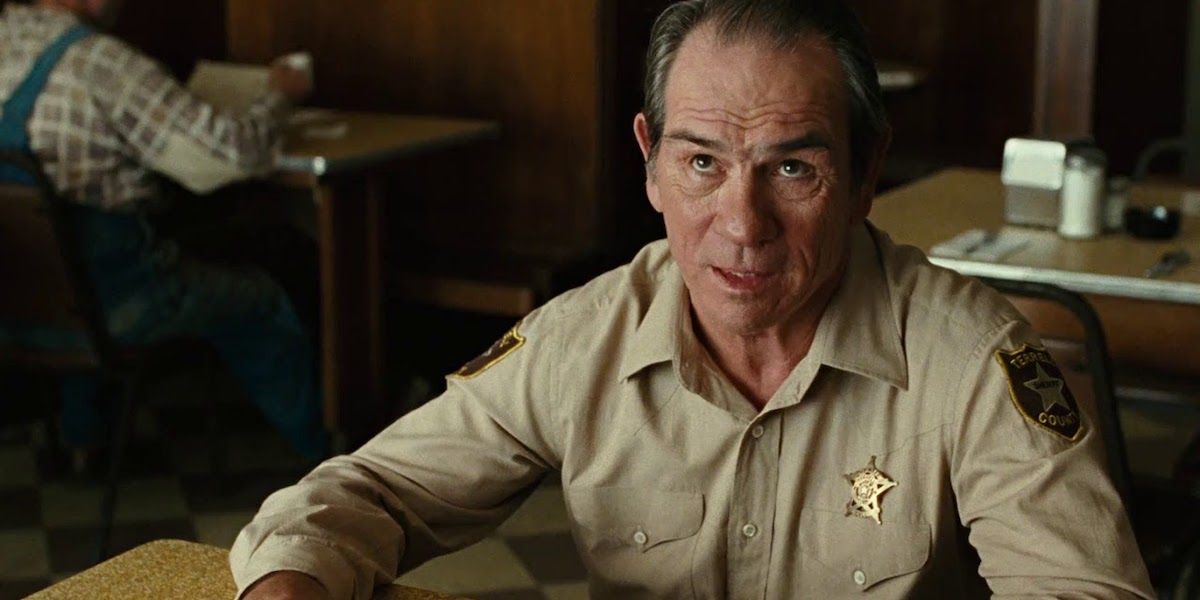It’s hard to believe that just fifteen years ago the Coen Brothers revolutionized the modern Western with their 2007 film, No Country for Old Men. Widely considered by many to be the Coen brothers' best film, it would go on to win Best Picture, Best Director, Best Supporting Actor, and Best Adapted Screenplay at the 80th Academy Awards. Adapted from the novel of the same name by Cormac McCarthy, a Vietnam veteran (Josh Brolin) stumbles upon $2 million, he’s pursued by an assassin (Javier Bardem) who’s hired to retrieve the fortune while a retiring sheriff, played by Tommy Lee Jones, attempts to track them both down. The film also stars Woody Harrelson, Kelly Macdonald, and Stephen Root.
One of the standout features upon watching this modern Western is the lack of musical score for much of the film; if heard, the score from Carter Burwell is played faintly. In addition to this, there’s a lack of dialogue from characters, often scenes playing out wordlessly. The silence is often unsettling yet affecting. The lack of sound complements the deliberate pacing of the film in order to build suspense and tension toward a climatic act of violence, primarily from Anton Chigurh. The lack of sound from the score and dialogue allows the Coen brothers to force the audience to pay attention to the visual story they’re telling. Re-teaming with their longtime collaborator, Roger Deakins captures West Texas in a way that highlights the desolation and loneliness seen throughout the film.
Since No Country for Old Men is devoid of score and dialogue for much of the runtime, the greatest strengths lie in the performances from the actors. Josh Brolin as Llewelyn Moss, for instance, builds tension in his scenes often without saying a word. Moss, a man on the run from an assassin tracking him through a transponder, silently strategizes to stand his ground in order to keep the $2 million he found after a drug deal went south. On the opposite end, Tommy Lee Jones as Sheriff Ed Tom Bell offers a different type of Western protagonist. Instead of providing a climatic triumph over evil like many Western films, this sheriff finds his escape through retirement. Even with his wisdom obtained throughout his years, Bell resigns to the fact that he can’t overcome the evil he faces. Jones’ performance is layered with the weariness of an officer at the end of the road yet the determination to see justice through to the end.
Javier Bardem transforms into one of the more terrifying, memorable movie villains in film history as Anton Chigurh. Chigurh makes his splash on the scene by choking a police officer with his handcuffs while in custody. From there, he takes his time traveling from scene-to-scene with a silent menace and persistence, all in the pursuit of tracking down his next target, Moss. Bardem’s cold, unblinking stare captures the void of empathy and remorse in Chigurh. The brief moments he does offer mercy is decided by a flip of a coin, leaving their fate to chance; this is similar to what Harvey Dent (Aaron Eckhart) would go on to do a year later in The Dark Knight directed by Christopher Nolan. From the moment Chigurh is introduced, he’s ruthless in a way that audiences can’t look away from. It’s no wonder Bardem would go on to win an Oscar for this performance.
All three of the main characters– Moss, Chigurh, and Bell– operate alone in their endeavors. Though Bell has a partner, he seems to prefer handling this investigation alone, leaving his partner (Garret Dillahunt) just to relay information that Bell has already figured out. Even Moss loves his wife, Carla Jean, he seems to be annoyed with her insistent questions that stand in the way of the time he needs to escape. Of course, Chigurh is his own one-man killing machine that will kill anyone who stands in the way of his mark.
However, despite their best efforts, these men’s journeys over the course of the film remain unresolved. Moss is killed by Mexican gangsters; Chigurh gets away with his crimes yet walks away with a bone sticking out and doesn’t get the satisfaction of killing Moss; and Bell retires without bringing Chigurh to justice. The film ends with the notion that none of these characters will know peace and their time will just run out eventually through some form of escape.
Though the Coen Brothers have previously explored the themes of circumstances vs. fate in Raising Arizona and Fargo, No Country for Old Men raises the stakes with the inclusion of a relentless villain and tension that keeps audiences on the edge of their seat. Despite the film feeling long during its first hour, the tension built through the slow pace does pay off. Though the film takes place in 1980, there’s a timeless quality to the film that allows it to age well with the years. Fifteen years later, No Country for Old Men remains one of the many crown jewels in the Coen Brothers’ impressive filmography.
Rating: A-



